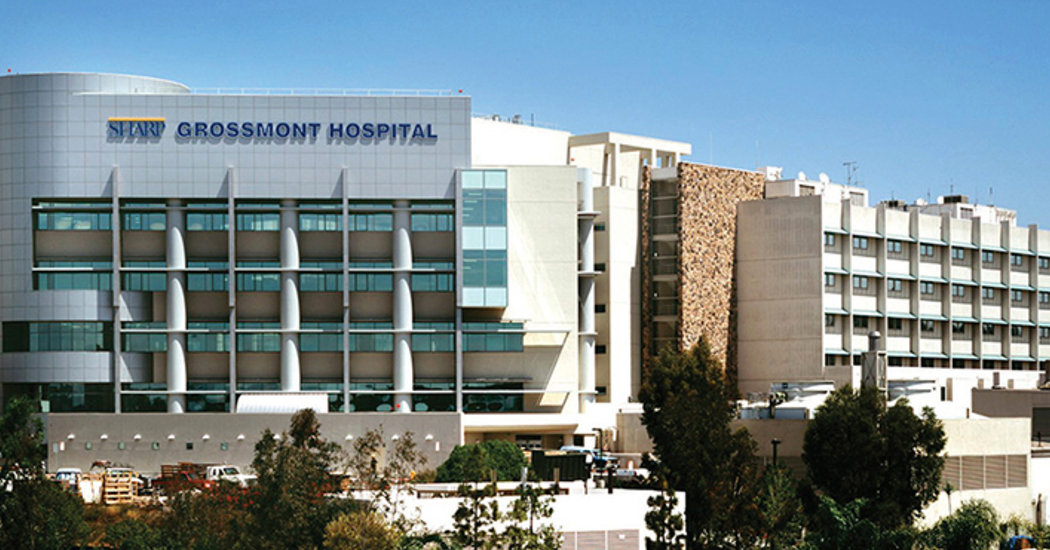
Dozens of women were filmed without their knowledge while receiving medical attention — including having surgery and giving birth — at a California hospital, according to a lawsuit filed last week in a state superior court. A lawyer for the women said 1,800 patients may have been filmed.
The lawsuit alleges that motion-activated cameras were set up in three operating rooms at Sharp Grossmont Hospital in La Mesa, Calif., as part of an effort to catch a possible medicine thief.
But between July 2012 and June 2013, the cameras also recorded female patients at the hospital’s Women’s Health Center as they consulted with physicians, got undressed, underwent examinations and went under anesthesia for operations, according to the complaint.
Eighty-one women are named as plaintiffs and more are expected to join, said the lawyer, Allison H. Goddard. She said that the videos did not appear to include audio, but that some women’s faces were visible.
A class-action lawsuit against the hospital, also regarding the recordings, has been pending since 2016. The new complaint, naming individual plaintiffs who learned about the videos beginning in December, was filed on Friday. The plaintiffs are seeking unspecified damages.
“It’s universal shock from the patients, and disgust,” Ms. Goddard said, adding that the hospital was still in possession of thousands of videos. “They don’t know how their videos might be used or who may have seen them because Sharp didn’t make sure that that would be taken care of.”
Hospital employees set up the cameras in 2012 because they were investigating reports of stolen medication. In a statement about the case, Sharp HealthCare, which is based in San Diego, said some powerful drugs had gone missing from the operating rooms.
“The three cameras were installed and operated to ensure patient safety by identifying the person or persons responsible for the removal of the drugs,” the statement said. “Although the cameras were intended to record only individuals in front of the anesthesia carts removing drugs, others, including patients and medical personnel in the operating rooms, were at times visible to the cameras and recorded.”
The complaint alleges that in addition to invading the women’s privacy, the hospital was negligent because the video footage was stored on computers used by multiple people, and not all of the computers were password protected.
“They were reckless, to say the least,” Ms. Goddard said.
It seemed that Sharp Grossmont could have found less intrusive ways to investigate the missing medicine, said I. Glenn Cohen, a professor at Harvard Law School and an author of the casebook “Health Care Law and Ethics.” He noted that he did not have information about the hospital’s defense.
“It appears they kept at least some of the videos for some time,” Professor Cohen said, “and one would think the right thing to do, even on the hospital’s own rationale, would be rapidly review them and destroy them right after if they didn’t show any evidence of the drug theft.
“The fact that they failed to do even that is quite troubling.”
Sharp HealthCare said in its statement that the company and the hospital “continue to take extensive measures to protect the privacy of our patients.”
“The surveillance methods in the 2012-13 investigation were used for this particular case only and have not been used again,” it said. “We sincerely regret that our efforts to ensure medication security may have caused any distress to those we serve.”
John Cihomsky, a spokesman for Sharp, said that only a handful of authorized people in Sharp HealthCare’s security, legal and clinical departments have reviewed the videos in connection with litigation or investigations. He noted that some videos were handed over in response to subpoenas or court orders associated with the lawsuits.
“The videos themselves are, and have always been, securely maintained,” he added.

